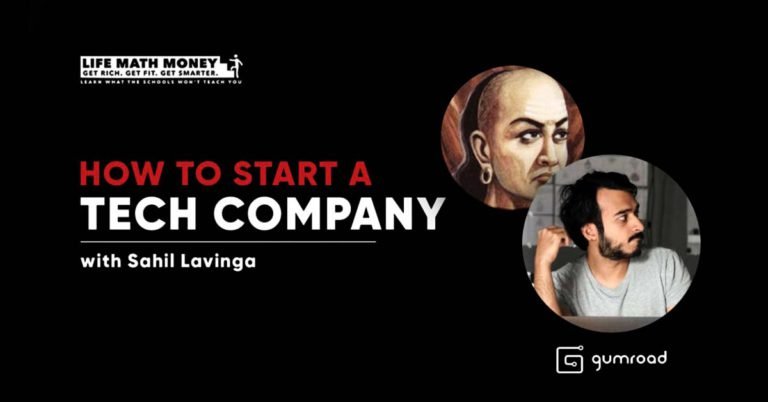This one is going to be a podcast. This was my first time using the (rather low-quality) mic equipment so there were some sound quality issues – so please bear with me here!
Below is what I discussed in the podcast (and then some) for those who prefer a text-based format.
Let’s first start with this: Is business for me?
Social media and the “hustle” people like to paint a very pretty picture of the life of an entrepreneur.
Cool cars, sexy models, you wearing a suit with an expensive watch and standing under the sun with some wine in hand … you know what I’m talking about.
The reality could not be further from the truth.
In reality, living like an entrepreneur (especially when you’re managing a full-time job on the side) involves dealing with lots of stress, a severe lack of time, having to skip workouts here and there, and a bit of sleep deprivation.
You absolutely will not have time to go out partying, you will not have time for women, you will not have time to “do coffee”.
It’s not a ‘fun’ life by any means – no matter what the movies show you and no matter what the #hustle crowd tells you.
And success is not guaranteed. (A job doesn’t guarantee stability either, but that is a different topic for another day)
You will have to live like no one will, so you have a chance to live like no one can.
I consider it to be a worthy cause, and I respect anyone who tries. But all do not make it.
If you can make peace with the uncertainty, the extra effort, and the sacrificed social life – then a business might be for you.
Otherwise, you would be better off with a performance-based career. (Hourly jobs are not recommended for anyone)
With that out of the way, let’s also address some more preliminaries:
1. You’re not going to be quitting your job or dropping out of school that you’ve paid for until your business makes enough money for you to survive.
Don’t drop out of school to start a business. Start a business, and if it works well and you need the extra time – then you can consider dropping out.
For some reason, being a drop out startup entrepreneur is cool now, but take my word for it: in business, anything that seems cool and sexy usually has a spectacular explosion ahead of it. (The dotcom companies etc.)
Don’t chase glamour – glamorous decisions don’t make economic sense. Business requires making economically rational choices.
When it comes to quitting your job – try to put yourself in a position where you get laid off instead of quitting. If you get laid off, you get paid a severance, that can be used for the business.
2. We won’t be starting an easy-entry hyper-competitive “business” such as dropshipping.
Dropshipping is an overcrowded, extremely competitive, and a terrible business to be in. Most stores close in less than three months.
The industry is full of corpses, and as a trade practice, I don’t step into any field that is full of corpses and hope to make money.
Alright, with that said, let’s get into the meat of the discussion.
If you want to start a side business, you will need two things:
1. A skill that you can monetize
2. Some amount of capital
The details are different for every business, but since we’re talking about running a side business – I’m going to be assuming that you’re going to be short on funding.
Because of this, we will not be starting a brick and mortar business (they don’t do nearly as well as online businesses anyway).
Now, you need to pick a paper and pen and write down the skills you have – the ones you learnt as you worked your job.
If you’re someone in HR – these skills will revolve around recruiting and interviewing.
If you’re a software engineer – your skills will be writing code.
If you can use Photoshop and edit images and videos or help people set up websites – those will be your skills.
[If on the off chance you find that you have no skills at all (say you’re a full-time student with no real world experience at all or worked no-skill jobs like being a receptionist or burger flipper):
1. Get some internships and spend some time helping people do things cheaply.
2. Use online resources such as Skillshare to learn things you can eventually take to the market
3. Research, research, research.
You can’t afford to be wasting time. You can’t start any business if you don’t have any skills. Your priority numero uno is to learn important skills and get them to a basic level at least before you start anything]
Now that you know your skills, we’ll test the market.
We’ll start with freelancing.
We’ll offer our time out for all those who want it over the internet (this sounds counterproductive, but it is a business strategy).
By becoming a freelancer and working with ~15 clients, we will figure out what the market demand is, what are the common problems businesses and consumers are facing, and if the business would be viable at all.
If you have a B2C skill, you can skip the freelancing step.
(Remember, we’re trying to free ourselves from the “selling time” game – so our ultimate goal will be to get into a product based business or even a service business that does not involve your time.
After a point, it should be a business you can run without actually being involved in the day to day activities.
The idea is to make money without being at a particular place at a particular time.
This should rule out businesses such as becoming a realtor or a doctor. They’re jobs in disguise. They cannot be scaled. They can never give you time freedom.)
Once you’re sure that a market exists, you need to spend some time developing a product (preferably digital, no physical delivery) that solves a problem for someone.
A lot of people who are looking to casually start a business get stumped at this step.
They usually skip the “honing your skills” and “researching the market” bit completely and want to get started raking in money from day 1. (The same people who fall for the “get rich quick” scam)
If you can’t think of what product you can create, you either 1) Need more experience in your industry to understand what people want or 2) Need to get off your ass and actually learn something useful (or both).
If you’re a bodybuilder with some experience with training people – you’d know what exercises work for which people and which supplements works and for whom. You’d be perfectly placed to contact some manufacturers and develop your own line of supplements and even a training video guide.
If on the other hand, you’re just some guy who occasionally goes to the gym – you wouldn’t know anything about the bodybuilding and supplement industry to begin with, so of course you’re going to be stumped when creating a product in that particular industry.
I told you before, it’s not as easy as the movies make it look.
You are going to need real experience and skills and knowledge.
You cannot skip that part. Don’t try to skip that part. It won’t work out and you’ll quit before you even started.
And yes, doing it with a job is going to be doubly hard, especially if you’re also teaching yourself skills you never had.
Once you have your basic product ready (it does not have to be perfect yet) – try marketing it.
You can use online distribution channels and use cheap online ads to promote yourself.
Once you have a few sales, reach out to your customers and ask for feedback.
Use that feedback to improve the product and keep repeating this process.
Once you reach a certain level, you can quit your job and use the extra time to take your business to the next level. Hire employees and scale up.
You’ll need to learn a bit of everything when you’re starting out – from setting up websites to cold calling people and writing marketing emails.
But don’t fret.
You’ll learn new things as and when you need them. You don’t have to know everything in the beginning – just know your core skill reasonably well.
Leave the rest to compound interest.
But Harsh, how do I get the time?
Well, most 8 hours a day desk jobs require only 4 hours of focused work. Office workers waste the rest on things that don’t matter.
Work on your business while you’re at your job.
—
An interesting place for startup related guidance is The Fastlane Forum.
Further reading: The Live Life On Your Own Terms series and 5 Steps to Make Money in 2024 (Full Guide)
Hope this helps.
Your man,
Harsh Strongman











